Inner Nature: Animal Development: Evolution of Body Plans
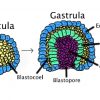
By Vidya Rajan, Columnist, The Times
To observe a graceful animal in motion is a beautiful thing.
This is even more so for those justly celebrated for their mastery of movement, such as a hummingbird hovering over a flower, or a human thundering to a heart-stopping sub-10 second 100 meter Olympic run. The seeming perfection of form is an illusion – all forms are in development, with each generation...
Don’t retire, ReFire: As summer draws nigh

By Gail Suplee Tatum, Columnist, The Times
As the sun sets earlier each night and the periodic crispy evenings have returned, we are reminded that the season of fall will be upon us in the blink of an eye. Did it go fast for you?
Time passes. The days, the months, the years go on. In spite of that, we often times try to hold on to the season that we’re in and the moments in that season, because,...
A new world for dentistry
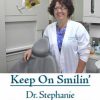
By Dr. Stephanie McGann, DMD FAGD, Columnist, The Times
It’s a new world in dental care and most people just don’t know.
Online dental consultations, called teledentistry is here and here to stay. Have a question? Need advice? Don’t know what to do? For a small fee you can go online to a number of different teledental sites, answer a few questions and get hooked up with a dentist licensed in...
If it looks too good to be true, it probably is
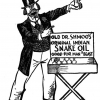
By Dr. Stephanie McGann, DMD FAGD, Columnist, The Times
Buyer Beware, I heard my parents tell me that decades ago when I earned my first paycheck working as a part time lifeguard. It was the mid 1970’s and I wanted a stereo. Yes I just dated myself. I listened to music before the ipod,earbuds and pandora. I knew the sound of a needle skipping on a record and the horror of a cassette tape unraveling...
Don’t Retire, ReFire: Living with urgency

By Gail Suplee Tatum, Columnist, The Times
As I thought about what urgency means to me, and the purpose of my message, more forms of urgency opened up and surfaced.
Urgency, by definition, has two meanings. One meaning is of persistence and insistence.
A good example of this meaning is the urgency of the “now” mentality we live in. In this day and age where all of our “conveniences” have made...
Dental tips for a great vacation

By Dr. Stephanie McGann, DMD FAGD, Columnist, The Times
Hooray — it’s time for the long awaited vacation. I’m going to share some of the tips on how to handle a dental problem when you are away from home. Nobody wants a tooth problem but being prepared will help lessen the inconvenience and perhaps keep that vacation on track.
Inner Nature: Immunity — Autosurveillance
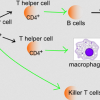
By Vidya Rajan, Columnist, The Times
The immune system is the mechanism that protects and defends the body. Although its main purpose is defense against attack, the immune system is also a barrier, border patrol, soldier, police, doctor, parent, and amazingly, a fortune-teller, all in one package. Not only that, it exists in every living organism from bacteria to plants to animals to protect against...
Brush up on your teeth cleaning skills
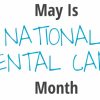
By Dr. Stephanie McGann, DMD FAGD, Columnist, The Times
Did you know that May is designated National Dental Care Month?
I didn’t but it seems there is a national month for everything. I just learned that May is National Dental Care Month. A great time to share some toothbrushing tips.
Inner Nature: Circulation — nutrients in, waste out
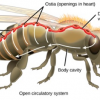
By Vidja Rajan, Columnist, The Times
The purpose of circulation is to bring nutrients to cells and remove wastes. Circulation is important for all organisms, including plants, fungi and bacteria; it’s no good to a cell if materials cannot get in and out efficiently. In single-celled organisms, which live suspended in an aqueous environment, the medium performs this function.
Don’t Retire, ReFire: Connections

By Gail Supplee Tatum, Columnist, The Times
What comes to your mind when you think about connection? Whatever your answer is, no doubt, it brings “good feels”. It’s a massive word that can take your mind in so many directions.
Making human connection begins at birth. It starts where no words are spoken, just the gentle connection of a mother holding her baby and looking into his or her eyes....


